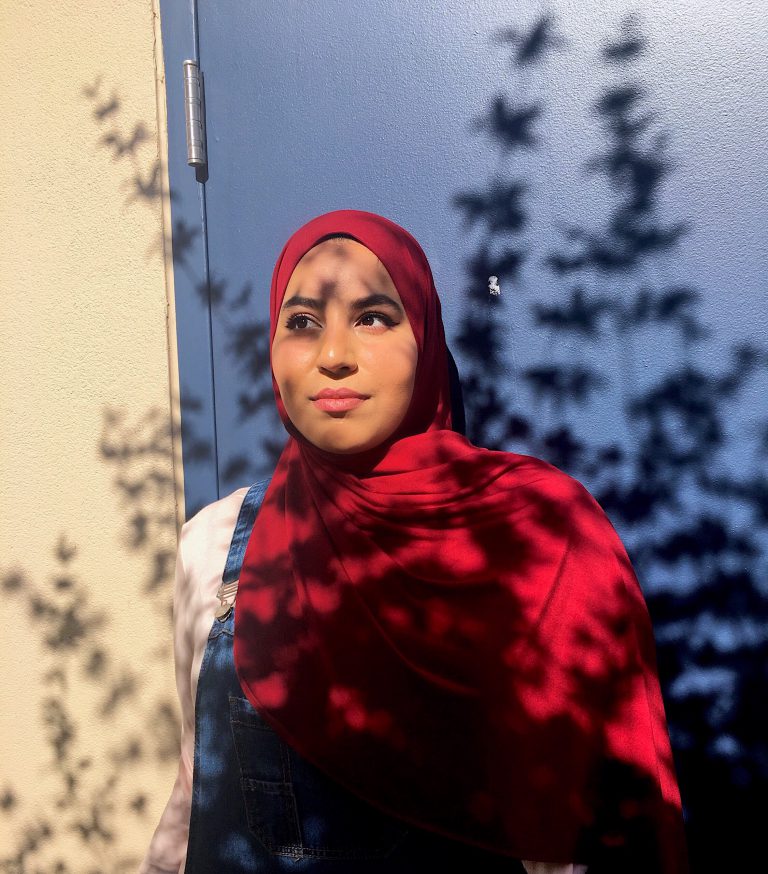
The Road Map Project recently announced its first-ever Community Leadership Team, a group that will provide visionary leadership and community accountability for improving education results and closing achievement and opportunity gaps. Over the next few months, you’ll get to learn more about each of the 13 new members through this series.
Zahra Al-Najaf is a first-generation refugee, graduate, and mentor who is committed to helping youth of color navigate the education system. She graduated from the University of Washington with a degree in political science/Near Eastern studies and a minor in law, societies, and justice. She enjoys watching movies, reading poetry, and exploring bubble tea cafes!
1. In one sentence, how would you sum up your day-to-day work?
My day-to-day work is exhausting, rewarding, dynamic and enlightening.
2. What do you want people to know about the community or communities you are a member of?
I want people to know that my community, Tukwila, is like other immigrant and refugee communities: We are survivors, children of survivors, grandchildren of survivors-who are vibrant, hard-working, and resilient. For these simple facts, we should be respected.
3. Tell us about a time when an educator or educational experience made a big impact on you.
Many college courses required active participation, which meant that in order for me to succeed, I needed to speak in class. Public speaking was something I struggled with well into my junior year of college and it wasn’t until my senior year that I was able to confront, then overcome, my fear of public speaking. During fall of senior year, I took a seminar with a professor who made a conscious effort to make all her students comfortable. At the beginning of the quarter, she asked us to anonymously answer how we would feel most comfortable participating in class, and each week she would try a student’s suggestion, including group work, discussion boards, and class discussions. This helped me understand my strengths and weaknesses to improve my speaking skills. Eventually, with much trial and error, I finally feel comfortable speaking in front of others.
4. Who’s your favorite social justice advocate, living, dead or fictional?
Kimberlé Williams Crenshaw is my favorite social justice activist. She introduced the concept of intersectionality and how individuals are very much capable of having overlapping identities, which create overlapping oppressions. It is important to understand how intersecting identities relate to existing systems, institutions, and structures that affect individuals simultaneously in multiple degrees. Crenshaw highlighted that in order for social justice work to be effective it needs to be intersectional because only then is it truly inclusive.
5. If you can make one immediate change to the education system, what would it be?
One immediate change I would make is to eliminate school funding inequality that consequently segregates and disenfranchises students who are low income. Most public schools are funded by local property taxes so poorer neighborhoods that have lower home values collect less taxes, meaning that schools cannot raise enough funding and inevitably have less resources available compared with schools in affluent neighborhoods. Changing the way funding is distributed so public schools have more resources will be so meaningful and beneficial to students who are suffering from this systemic issue.
6. What are your hopes for the Community Leadership Team?
My hope is to improve the education system in South Seattle and South King County, address systemic and institutional issues that have disenfranchised students, as well as help students navigate through the education system with the whole Community Leadership Team!
7. Finish this sentence: Equity is …
…necessary.
8. What was the last thing you read, watched or listened to? Would you recommend it?
The last thing I watched was a documentary on Netflix called “Homeland: Iraq Year Zero,” which captures life in Iraq before the war in 2002 and life after. It’s so important to understand that during times of war, people are suffering. Its so easy to become desensitized and carry an “us vs. them” mentality so this documentary does a really great job of humanizing people who are often vilified in mainstream media. I would definitely recommend it!
9. Where is your favorite place to go in the Road Map Project region (South Seattle and South King County)?
There is this cute bubble tea spot called Burien Fresh smoothies in Burien that uses fresh fruit instead of powder or syrup and the owners are absolutely amazing!
10. What is one of your most cherished family traditions?
Clue! My family is very serious and competitive when it comes to Clue. It’s honestly so fun to disconnect from our busy lives, social media, technology and everyday stress to solve a fictional murder.
11. What inspires you?
I find inspiration from my mom who has been my source of strength since birth. She is my favorite person for many reasons including her wisdom, empathy, kindness, and gallantry. She is so amazing (mashAllah!) and I aspire to be half the woman she is.
Posted in: Community Leadership Team